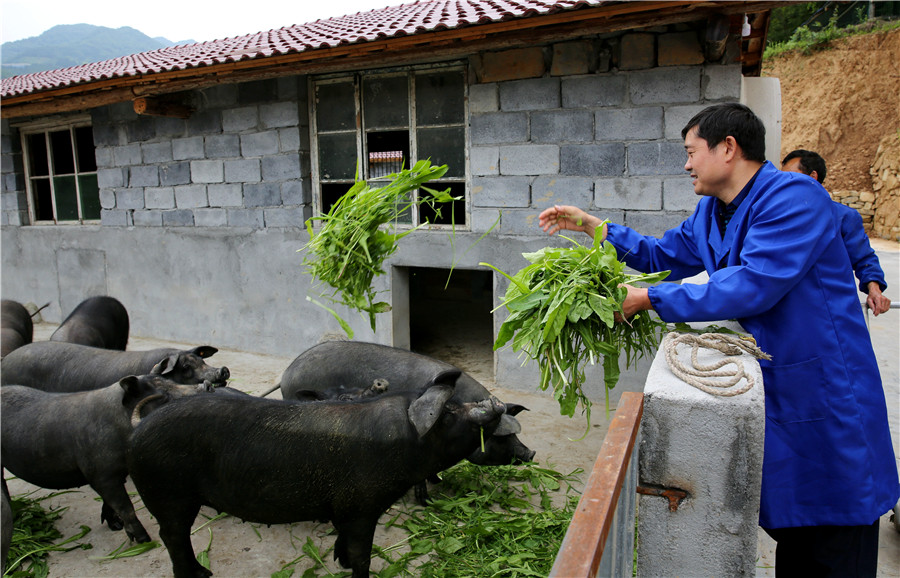Piggies in the middle of animal welfare efforts


"About 95 percent of mother pigs in China are crammed so tightly in cages that they can't turn round. Their muscles wither and they become weak. Pigs raised for meat are kept in barren pens with uncomfortable floors and they have skin lesions and disease. Unhappy pigs get sick more quickly," Zhao said.
Moreover, he said that in the first weeks after birth piglets' teeth are usually deliberately ground down or clipped and their tails are docked to prevent them from biting one another or sustaining injuries that could become infected.
"Most farmers regard the old methods-such as raising pigs in confined spaces and limiting activity to increase their weight-as ways of maximizing profits. They don't know that raising pigs in better conditions can result in much higher profits," Zhao said.
According to studies conducted by the NGO in farms across the world, good animal welfare raises birth rates and reduces stress, injury and illness, thereby reducing the need for antibiotics.
Ultimately, pigs produce better-tasting meat if they are raised in good conditions.
Increased cooperation
Three large farms are cooperating with World Animal Protection to raise pigs in accordance with the principles of improved animal welfare: Dexing; Zhejiang Qinglian Food Co in Zhejiang province; and Beijing Dabeinong Technology Group Co in the capital.
In addition to reducing the length of time sows are caged and ending the docking of piglets' tails, the three companies have introduced automated systems to improve the animals' living conditions.
In 2016, Dexing built its first modern facility-based on the Nordic Smart Farm model-in Shantou, Guangdong, bringing state-of-the-art rearing technologies and management techniques to China for the first time.
Smart ventilation and intelligent feeding systems, allied to big data management methods, mean that only eight people are required to oversee the farm's 2,000 sows, which give birth to 50,000 piglets a year.
In fact, the small number of workers means the premises often look deserted.
Dexing now also operates Nordic Smart Farms in Shanghai and the provinces of Shanxi and Jilin.
The company has also imported automatic cleaning machines and detergents from Germany to cut the time it takes to clean the facility. For example, it used to take one worker a week to clean the pig shed, but the increased use of automation means the job can now be done in just two days.
























